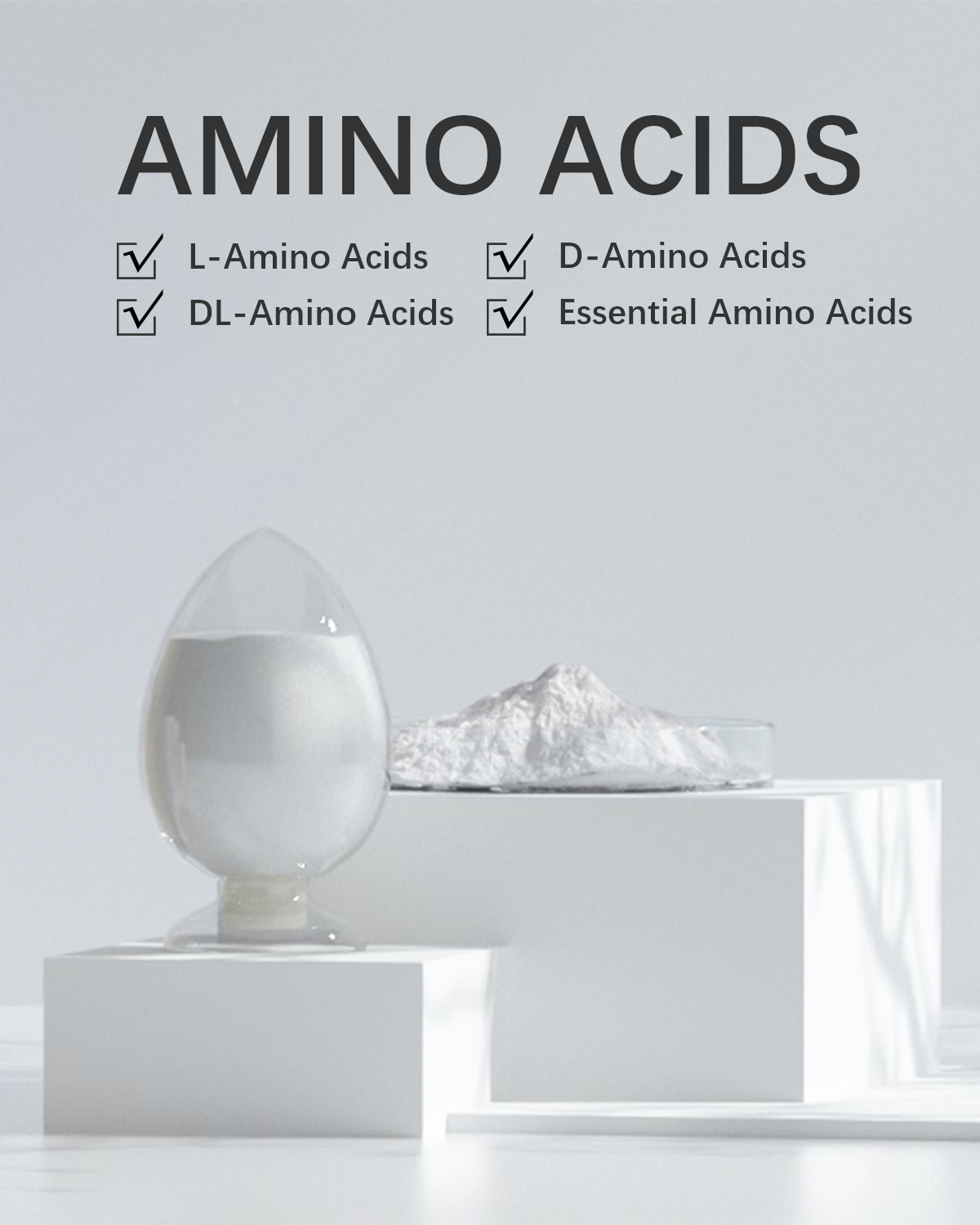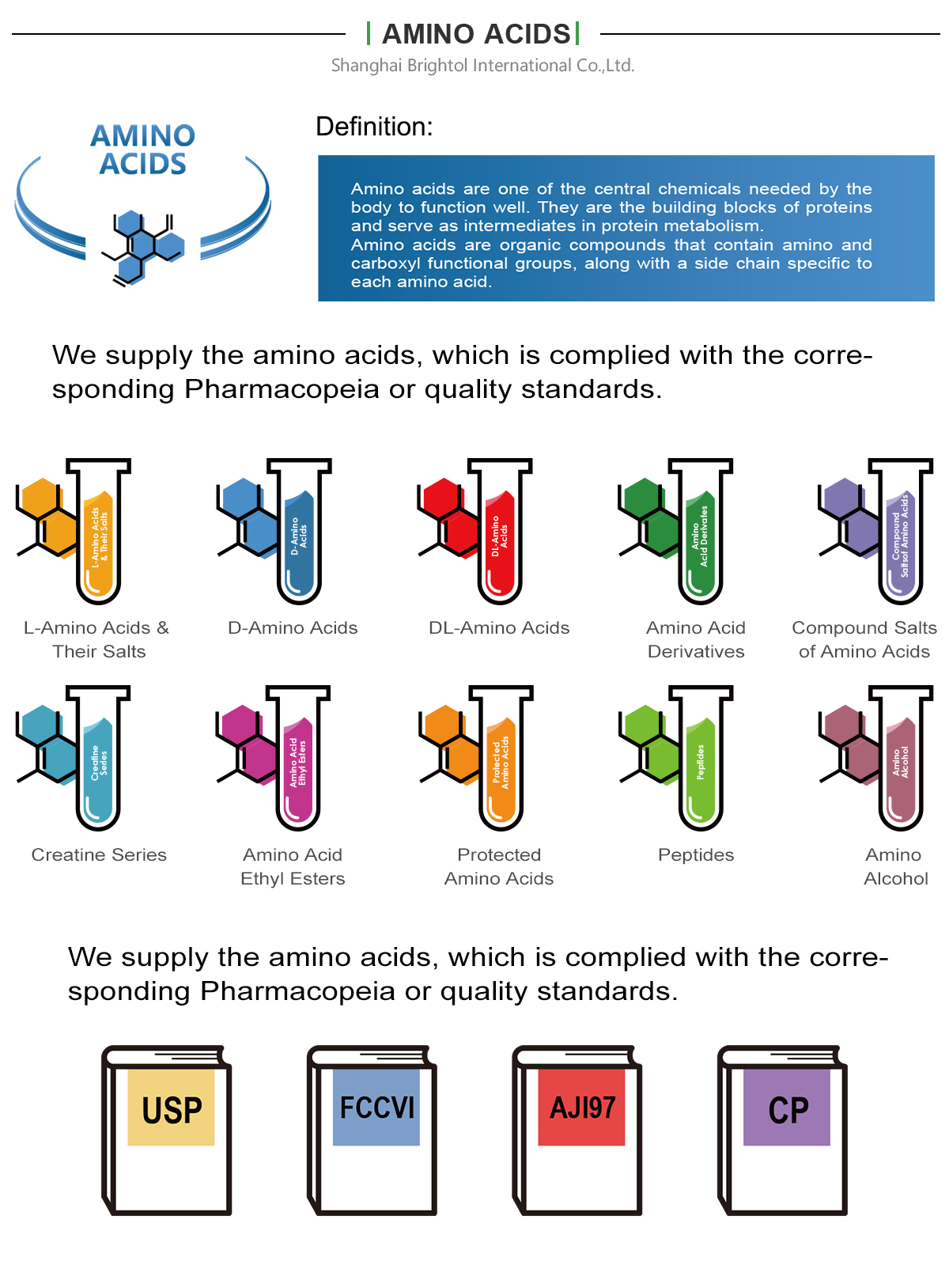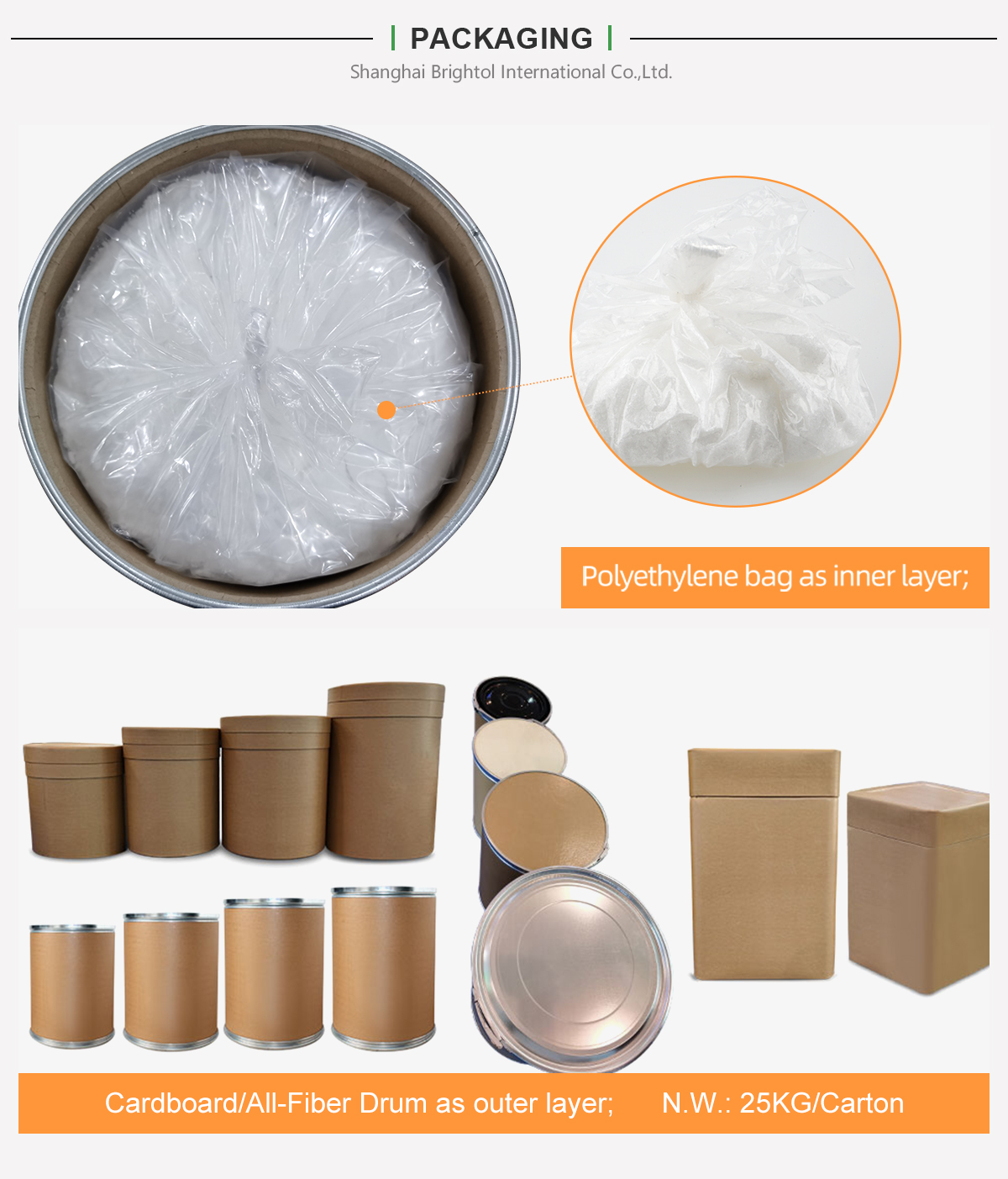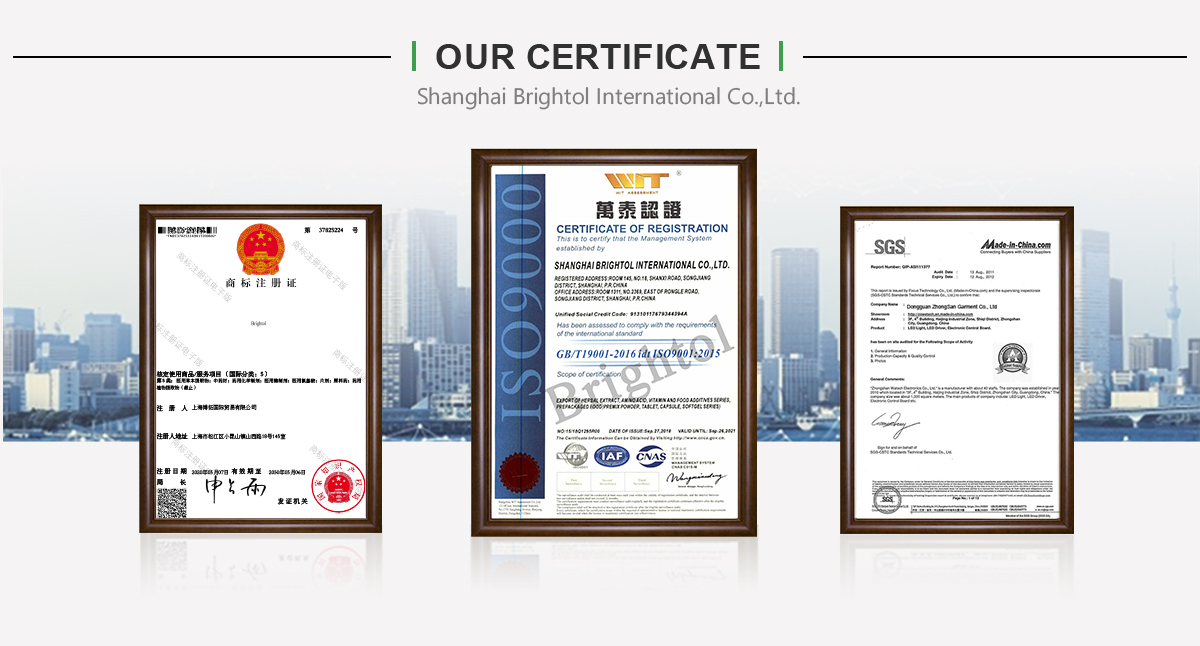

Product Name: D-Aspartic Acid
Synonyms: D-2-Aminobutanedioic acid; D-Aminosuccinic acid
Molecular Formula: C4H7NO4
Molecular Weight: 133.10
CAS No.: 1783-96-6
EINECS: 217-234-6
Description
D-Aspartic Acid is one of two forms of the amino acid aspartic acid. The other form is L-aspartate.
D-Aspartic Acid is an endogenous (meaning that it is produced by the body) amino acid which has been found in the nervous and endocrine (i.e. hormone producing) tissues of both animals and humans. It is one of 20 building blocks of proteins, called proteinogenic amino acids.


Product Name: D-Aspartic Acid
Synonyms: D-2-Aminobutanedioic acid; D-Aminosuccinic acid
Molecular Formula: C4H7NO4
Molecular Weight: 133.10
CAS No.: 1783-96-6
EINECS: 217-234-6
Description
D-Aspartic Acid is one of two forms of the amino acid aspartic acid. The other form is L-aspartate.
D-Aspartic Acid is an endogenous (meaning that it is produced by the body) amino acid which has been found in the nervous and endocrine (i.e. hormone producing) tissues of both animals and humans. It is one of 20 building blocks of proteins, called proteinogenic amino acids.
Benefits
D-aspartic acid’s primary benefit is production and stimulation of hormones that improve the quality of life. Supplementing with it results in the enhancement of physical and athletic performance.
D-Aspartic Acid acts as a natural boost for testosterone levels and regulates brain activity, which causes an increase in brain function, better mood and sharper memory
Uses
D-Aspartate, D-Sodium-Aspartate, as well as N-Methyl-D-Aspartate, all perform neurotransmission and neuromodulation functions. The synthesis of enzyme proteins and signal proteins in the body’s nerve cells is also stimulated by this substance.
DAA is often associated with the regulation of hormones in the body (endocrine system). It is also found to be a stimulant when it comes to synthesizing enzymes that boost testosterone production.









